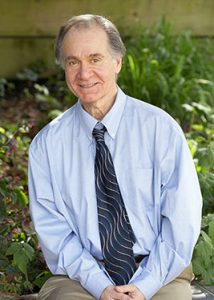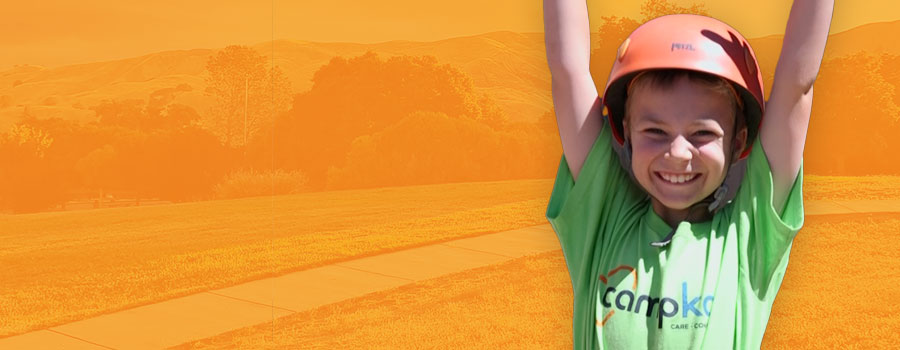An Interview with Dr. Garfield

Compassion Cultivation Training – Summer 2019
March 27, 2019
Programa de Reducción del Estrés basado en Mindfulness
May 12, 2019A Conversation with our 2019 Spring Fundraiser Guest Speaker – Dr. Charles Garfield
Tell us about your background. What has inspired you in doing your life’s work?
I was originally trained as a mathematician and actually worked on Apollo 11. The premise of a moon landing was a risky proposition with only a 50/50 chance of success, but I saw a group of ordinary people come together to make an extraordinary thing happen with the Apollo 11 project. I realized that when people bond together about something for which they care deeply, amazing outcomes can result.
I went on from mathematics to pursue and complete a PhD in Psychology at UC Berkeley. In 1974, as a UCSF clinical professor of psychology, I was assigned to be the only mental health professional on a floor with 40 critically ill people who had emotional, mental, and spiritual needs that I simply could not fulfill by myself. One day, I was struck with the idea that I could start a peer support model of care by identifying the right people to participate with the proper training in basic counseling skills. I was inspired by the Apollo mission to train people to accomplish together what was impossible for me to do alone. This formed the beginning of The Shanti Project in San Francisco, a widely acclaimed AIDS and cancer service organization based on the peer support model. Later, I realized that we could extend Shanti’s offering of peer counseling from the hospital setting to also include support in the home, which meant we could bring the same care and compassion to nurture people out in the community.
The peer counseling model is unique in the way that caring for another person can be nurturing and renewing to the caregiver, too. People are surprised by how much they themselves gain from serving in a peer support relationship, in a mode of caring that feeds and sustains them as much as the care they offer to another human being. The model works by adding skills and tools with proper training to the innate human power to care for others.
How did your experience at The Shanti Project relate to Kara’s founding in the late 1970’s?
In 1976, I worked with a small group of people on the peninsula who wanted to implement the same type of peer counseling support for people nearing the end of life or grieving the loss of someone significant to them. Shanti and Kara are based on the basic, yet essential idea that “Love heals. Love endures”. When we put love at the center of life, we can both transform and be transformed by its powerful healing effect.
Shanti is a Sanskrit word meaning “inner peace” or “tranquility”. Within the San Francisco community, Shanti is a fitting name for the peer support counseling and direct service offerings that aim to improve well-being and lessen burdens on people who are dealing with difficult life situations. I suggested the name Kara for the grief counseling and support services offered in Palo Alto, as the word Kara is the gothic root word for “care”.
I believe that people want to be their best selves, to do work that has meaning and purpose in the caring of others. The “Nine Commitments” laid out in my book, Life’s Last Gift: How to Give and Receive Peace When a Loved One is Dying, are like a training manual for how to become one’s best self. The commitments apply to life in general, not only to end of life situations. They form the guidelines for both giving and receiving peace in interpersonal relationships, where love is the central focal point in having a meaningful life.
What kinds of projects are your priorities at this point in your life?
I am pleased with the overwhelmingly positive response to my book, Life’s Last Gift: How to Give and Receive Peace When a Loved One is Dying. The Nine Commitments have been well received as practical guidelines for how to live a meaningful life with deep relationships and human connection. I’m working on another exciting book project right now. I also continue to participate in the six trainings annually that Shanti offers to new peer support counselors. Shanti-trained volunteers now number more than 1,000 people, and I’m very pleased with that growth in the model of people helping people.
I also serve as a research scholar at the Starr King School for the Ministry at the Graduate Theological Union (GTU) in Berkeley. I am enjoying the transition from teaching medical students at UCSF to teaching theological students at the GTU.
When I can, I love to travel to new places. In both natural and man-made beauty, I find spiritual renewal and great satisfaction. There is a kind of anonymity in traveling that I find comforting and peaceful. I also find that I increasingly value my friendships and am nurtured by deepening those important relationships in life.
I continue to love and respect the mission of Kara. I look forward to joining the Kara community on April 27th in Palo Alto, and am grateful for the opportunity to give back to an organization in which I believe so strongly.



